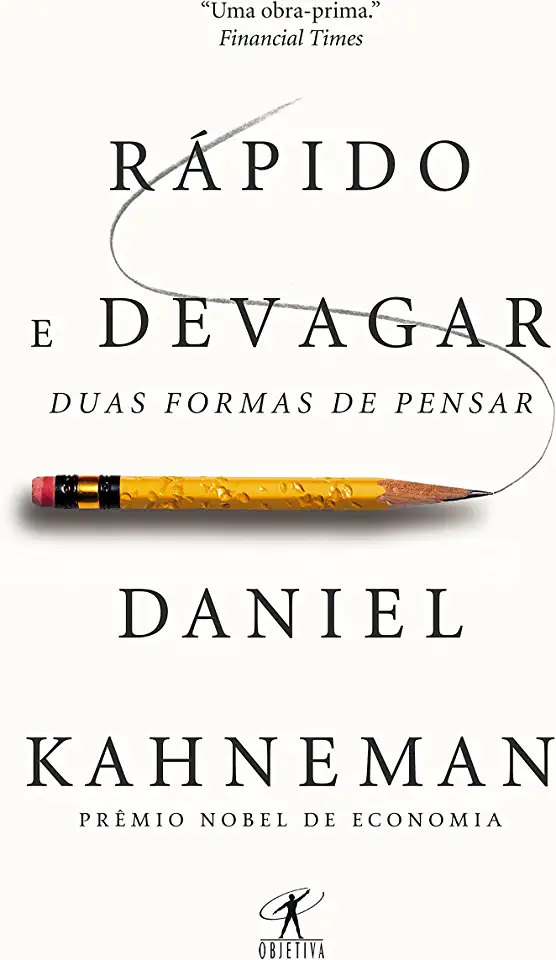
Thinking, Fast and Slow, Daniel Kahneman
Thinking, Fast and Slow: A Masterpiece of Behavioral Economics
In his groundbreaking book, "Thinking, Fast and Slow," Nobel laureate Daniel Kahneman takes readers on a captivating journey into the inner workings of the human mind, revealing the intricate interplay between our intuitive and analytical thinking processes. Through a wealth of compelling examples and thought-provoking insights, Kahneman challenges conventional wisdom and offers a fresh perspective on how we make decisions, form judgments, and navigate the complexities of life.
Unveiling the Two Systems of Thought
Kahneman introduces the concept of two distinct systems that govern our thinking: System 1 and System 2. System 1, the fast and intuitive system, operates automatically and effortlessly, relying on heuristics and mental shortcuts to make quick decisions. It's responsible for our immediate reactions, gut feelings, and snap judgments.
System 2, on the other hand, is the slower, more deliberate, and logical system. It requires conscious effort and attention to process information, analyze data, and make complex calculations. System 2 is engaged when we solve problems, make plans, and exercise self-control.
The Power of Heuristics
Kahneman delves into the fascinating world of heuristics, the mental shortcuts that System 1 employs to simplify complex decisions. These heuristics often lead to quick and efficient judgments, but they can also result in biases and errors.
One such heuristic is the availability heuristic, which relies on the ease with which information comes to mind when making judgments. For instance, we may overestimate the likelihood of an event occurring if it is more easily recalled from memory, even if it's statistically less probable.
Another heuristic is the anchoring bias, which occurs when we are unduly influenced by an initial piece of information when making subsequent judgments. For example, if we are told that a car is worth $10,000, we may be more inclined to believe that it's a fair price, even if it's actually overpriced.
The Illusion of Certainty
Kahneman exposes the illusion of certainty that often plagues our decision-making. We tend to be overconfident in our judgments and predictions, even when faced with incomplete or ambiguous information. This overconfidence can lead to poor choices and missed opportunities.
Kahneman illustrates this concept through the famous "Linda problem." When presented with a description of Linda, a feminist bank teller who is active in social causes, people are more likely to believe that she is a bank teller who is active in the feminist movement, even though the latter is statistically less probable. This tendency to overvalue certain characteristics and ignore others demonstrates the limitations of our intuitive thinking.
Overcoming Biases and Making Better Decisions
Kahneman provides practical insights into how we can overcome cognitive biases and make more rational decisions. He emphasizes the importance of recognizing the limitations of System 1 and engaging System 2 when facing important choices.
One strategy is to slow down and deliberately consider different options, rather than relying solely on gut feelings. Another is to seek out diverse perspectives and consult with others to mitigate the effects of biases. Additionally, Kahneman suggests using decision-making tools and techniques to structure our thinking and minimize errors.
A Transformative Exploration of Human Cognition
"Thinking, Fast and Slow" is a tour de force that challenges our assumptions about how we think and make decisions. Kahneman's masterful blend of scientific research, real-world examples, and engaging storytelling makes this book a must-read for anyone interested in psychology, economics, and the human condition.
Whether you're a seasoned decision-maker, a student of human behavior, or simply someone curious about the inner workings of your own mind, "Thinking, Fast and Slow" will captivate and enlighten you. Prepare to embark on an intellectual journey that will forever change the way you think about thinking.
Enjoyed the summary? Discover all the details and take your reading to the next level — [click here to view the book on Amazon!]